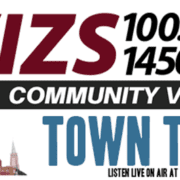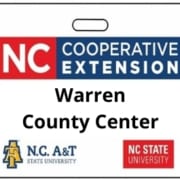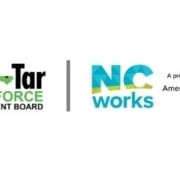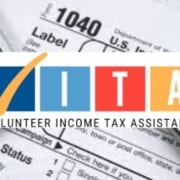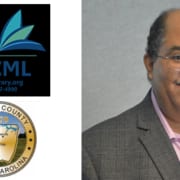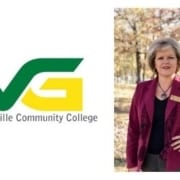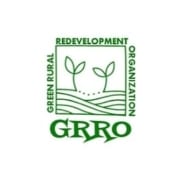TownTalk 02-25-21 with Mark Pace, Local Black History
(The latest in the WIZS Tri-Weekly Thursday Local History Series. Next broadcast March 18.)
Alonzo “Jake” Gaither’s Florida A&M football teams only lost four games between 1959 and 1963. But when he was football coach for Henderson Institute in the early 1920’s his team was winless in its first season.
Gaither, whose overall record for the A&M Rattlers is 204-36-4, began his coaching career right here in Henderson, and Mark Pace and Bill Harris discussed Gaither and other notable African Americans with ties to this area during Thursday’s Town Talk.
Pace, North Carolina Room Specialist at Richard H. Thornton Library in Oxford, said the powers-that-be of Henderson Institute were so thrilled with Gaither’s football and baseball coaching that they decided he should also be the basketball coach. It was a small detail that Gaither had never seen a basketball game and didn’t know a thing about how the game was played. But he took home the rule book one weekend, learned all the rules and then started coaching.
Undeterred after a winless first season on the basketball court, Gaither persevered and three years later, Henderson Institute won the state championship, Pace said.
Flemmie Pansy Kittrell was born in Henderson on Christmas Day, 1904. The first African American to get a Ph.D in nutrition, her research brought to light ways to combat malnutrition in many countries across the globe. She also was instrumental in the creation of the national Head Start preschool program.
Charlotte Hawkins Brown founded Palmer Institute, a day and boarding school for African Americans in 1902. The Sedalia school is now a state historic site. Brown was born in the Mobile area of Henderson.
And John Chavis was a free African American born in Vance County who fought in the American Revolution. He graduated from Washington and Lee University and returned to teach white children from local plantations, Pace said. One of those children was J.M. Horner, who became an educator himself, and later founded Horner College in Oxford.
Pace, who has extensive experience in genealogy research, noted that the African American community has strong roots in the area that now encompasses Vance, Granville, Warren and Franklin counties. By the 1860’s, enslaved people were held by fewer families on large plantations. Pace said his research in various Census records showed that Granville County (what is now the four-county area) had the largest number of enslaved people in North Carolina. Of 23,396 people living in Granville County in 1860, he said 1,100 were enslaved. When the war ended and the slaves were freed, Pace said, they generally took the surname of their former owners.
In the decades after the Civil War ended, many African Americans moved away from the southern U.S. states. In 1910, 90 percent of African Americans lived in the South; by 1960, Pace said, that number had dropped to 50 percent.
Matthew W. Bullock’s family moved to Massachusetts from their home in the Dabney community. His parents had been enslaved in North Carolina, headed north. Bullock attended Dartmouth and then got a law degree from Harvard University. Bullock was the first Black to coach an all-white high school – in 1899 – and went on to coach football at the University of Massachusetts.
Charity Adams Earley was born in Kittrell in 1918. She was the first African American woman to be an officer – a lieutenant colonel – in the Women’s Army Auxiliary Corps (later WACS) and was the commanding officer of the first battallion of African American women to serve overseas during World War II.
And then there’s Henry Plummer Cheatham, who was born in Henderson in 1863 to a white plantation owner and an enslaved house servant. Cheatham became the first register of deeds in Vance County, and later was elected to Congress. He was the only Black member of the 52nd Congress. Cheatham also was the recorder of deeds in Washington, D.C. around the turn of the 20th century. He returned to North Carolina and, for the last 30 years of his life, was head of the Oxford Colored Asylum (now Central Children’s Home). He died in 1935.
Cheatham was the next-to-the-last Black to represent North Carolina in Congress until the early 1990’s, when Eva Clayton of Warren County was elected. Clayton served for 20 years and was the first African American woman to represent North Carolina and the first Black since George White won a hotly contested race against his brother-in-law in 1896.
His brother-in-law? Henry Plummer Cheatham.
To hear the complete interview and learn more, listen to the podcast below.

